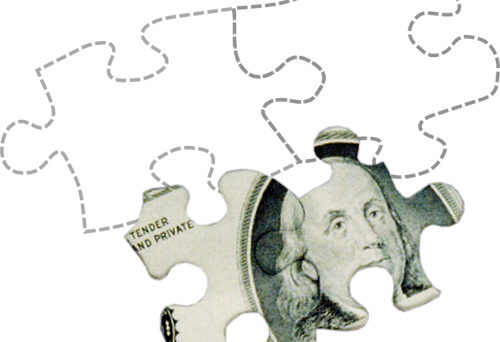 No one likes to imagine that someone is purposely deceiving them or hiding information from them, especially if such actions involve concealing assets in a marriage. If your spouse is becoming more secretive, erasing trails of certain shared finances and concealing marital assets, it could be a sign that he/she is preparing for a pending separation or divorce. Such actions are unethical and potentially illegal. Whether or not you believe your spouse is capable of such wrongdoings, consider the chance that he/she is doing such and take a proactive approach to getting a definitive answer.
No one likes to imagine that someone is purposely deceiving them or hiding information from them, especially if such actions involve concealing assets in a marriage. If your spouse is becoming more secretive, erasing trails of certain shared finances and concealing marital assets, it could be a sign that he/she is preparing for a pending separation or divorce. Such actions are unethical and potentially illegal. Whether or not you believe your spouse is capable of such wrongdoings, consider the chance that he/she is doing such and take a proactive approach to getting a definitive answer.There are some simple signs to look out for. If the lifestyle your family leads over a period of time doesn’t correlate with what you see as inflows and outflows from bank and investment accounts or from cash on hand during that same period, that may mean that assets may exist elsewhere that you’re not considering or, worse yet, that you’re not aware of! This is typical with many couples when one spouse manages the family finances while the other consciously chooses not to be involved at all or to the extent of the other. With a future divorce on the horizon as the motive, this opportunity could change the persona of your spouse to someone who you once thought would never do such a thing to one who is “capable.”
If you don’t feel comfortable investigation things for yourself or it’s too complex due to numerous transactions or accounts, you can always hire a certified forensic accountants who is well-versed at performing these functions. While you may not feel psychologically ready to take these steps, at a minimum protecting financial records is a must. If you’re already aware that divorce is on the horizon, you need to switch into protection mode by consulting with an attorney who will advise you what should be done.

 Unless a business valuation is required by agreement (as in the case of a buy-sell) or by law (such as when a gift is made by a business owner to his/her child) where its necessity is obvious, I am often asked why a business valuation is so important. Business owners often believe that they can determine the value of a business by merely applying a multiple of revenue, net income, EBITDA or some other industry standard. Such generalizations often swing and miss at the true value, not only when it is needed for purposes already mentioned but also when negotiating a value, such as when buying or selling an interest in a business or determining its value for settlement of marital assets in a divorce.
Unless a business valuation is required by agreement (as in the case of a buy-sell) or by law (such as when a gift is made by a business owner to his/her child) where its necessity is obvious, I am often asked why a business valuation is so important. Business owners often believe that they can determine the value of a business by merely applying a multiple of revenue, net income, EBITDA or some other industry standard. Such generalizations often swing and miss at the true value, not only when it is needed for purposes already mentioned but also when negotiating a value, such as when buying or selling an interest in a business or determining its value for settlement of marital assets in a divorce. Consider yourself lucky if you sold a stock at or near its high point or jumped in when it was near its bottom. As difficult as that is to accomplish, taking action at the ideal time is much easier to do when you’re considering the gift of your own company stock.
Consider yourself lucky if you sold a stock at or near its high point or jumped in when it was near its bottom. As difficult as that is to accomplish, taking action at the ideal time is much easier to do when you’re considering the gift of your own company stock.